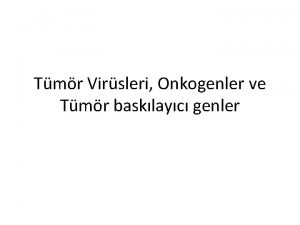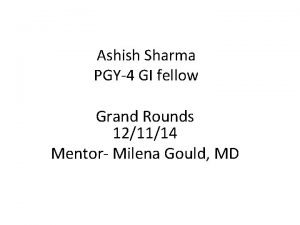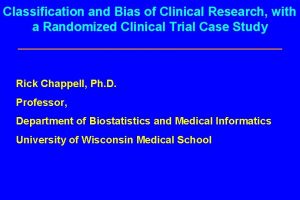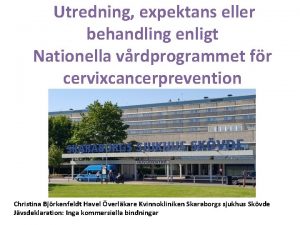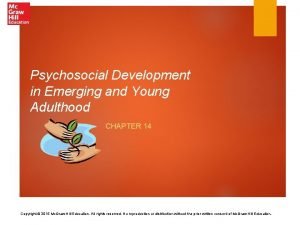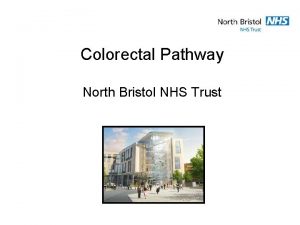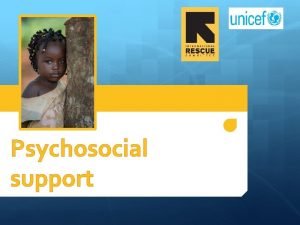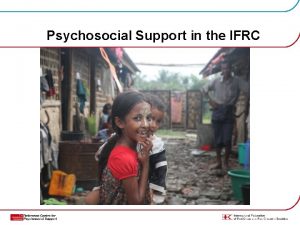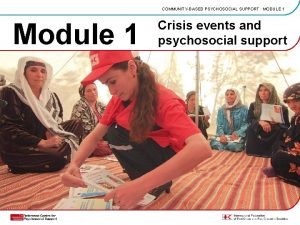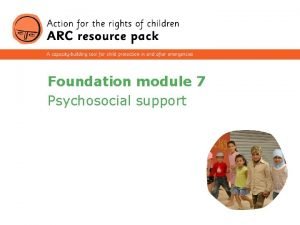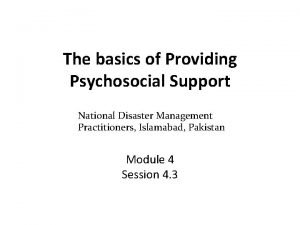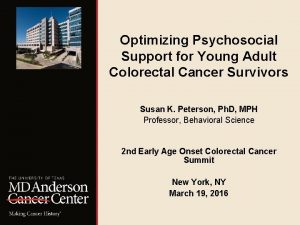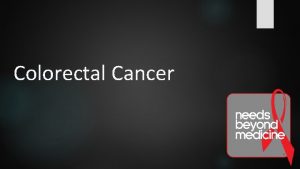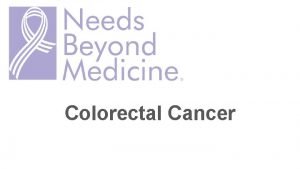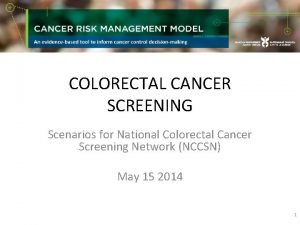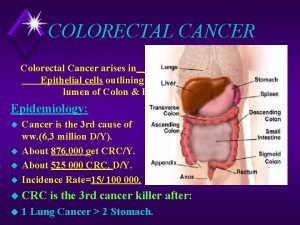Optimizing Psychosocial Support for Young Adult Colorectal Cancer











- Slides: 11

Optimizing Psychosocial Support for Young Adult Colorectal Cancer Survivors Susan K. Peterson, Ph. D, MPH Professor, Behavioral Science 2 nd Early Age Onset Colorectal Cancer Summit New York, NY March 19, 2016

Cancer Survivorship • Cancer survivorship = the state or process of living after a diagnosis of cancer • Encompasses not only the physical but also the social, psychological, and spiritual/existential impact of cancer on one’s life and for the remainder of one’s life.

Consequences of unmet psychosocial needs • Low social support → diminished ability to cope & manage illness, worse health outcomes • Emotional distress → impaired adherence, cognition, motivation, less effective coping • Chronic stress → depression, physiological changes • Effects on families and communities → reduced financial/material resources, caregiver burden

Psychosocial health care is integral to cancer care and survivorship Institute of Medicine (2008) • Need for psychological and social services and interventions as part of cancer care • Enable patients, their families, and health care providers to optimize biomedical health care • Manage the psychological, behavioral, and social aspects of cancer and its consequences so as to promote better health Health and Medicine Division (HMD), formerly IOM, National Academies of Science, Engineering and Medicine, 2008

Standard to improve psychosocial care for cancer survivors Health and Medicine Division (HMD), formerly IOM, National Academies of Science, Engineering and Medicine, 2008

Psychosocial needs of cancer survivors & services to address them Health and Medicine Division (HMD), formerly IOM, National Academies of Science, Engineering and Medicine, 2008

Improving the provision of psychosocial care for cancer survivors • Care standards and clinical practice guidelines for psychosocial aspect of oncology care – Distress screening, referral and management • National Comprehensive Cancer Network (NCCN) • Am College of Surgeons Commission on Cancer standards for patient-centered care – Valid, reliable self-report tools • Distress thermometer, problem list (NCCN) • Patient self-reported distress vs. oncologist rated – 69% vs. 6% received referrals – 28% vs. 4% accepted referral Jacobsen , 2015; Bauwens 2014

Measuring quality of psychosocial health care • Was patient’s emotional well-being assessed within 1 month of first oncology visit? • If a problem was identified, was an action taken to address that problem? • Providing feedback on quality of care may lead to improvements in care – Assessment: 64% → 73%** (over one year) – Taking action: 74% → 76% ** p<0. 001 Jacobson, Neuss, et al. 2011 Am Society Psychosocial Oncology

Psychosocial Health Services for Young Cancer Survivors • Quality of life concerns – Managing distress & emotions related to cancer, treatment, and fear of recurrence “Not sick nor healthy” – Social functioning and isolation • Disclosure and communication – Maintain/re-establish normalcy – Intimacy, sexuality, fertility – Loss: job/school, appearance change, relationship changes ***Positive attitudes, beliefs, feelings emerge from cancer experience

Adolescent and Young Adult Center MD Anderson Cancer Center • Survivorship care program • Fertility and reproductive medicine program • Psychosocial program – Psychological assessment and counseling • Psychotherapy, neurocognitive testing – Career/vocational guidance & educational consultation – Young adult life services – Arts in Medicine – Cancer 180 (peer support for survivors age 20 s and 30 s) • Specialty services – – – Pain Service, Palliative Care Integrative Medicine Body Image Therapy Program Energy Balance (exercise and diet) Tobacco Treatment Program

“Addressing psychosocial needs should be an integral part of quality cancer care. All components of the health care system that are involved in cancer care should explicitly incorporate attention to psychosocial needs into their policies, practices, and standards addressing clinical medical practice. These policies, practices, and standards should be aimed at ensuring the provision of psychosocial health services to all patients who need them. ” Health and Medicine Division (HMD), formerly IOM, National Academies of Science, Engineering and Medicine, 2008
